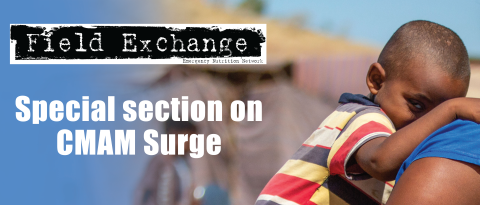Co-implementing vitamin A supplementation with seasonal malaria chemoprevention
Research Snapshot1
High-dose vitamin A supplementation (VAS) for children 6-59 months of age is recommended by the World Health Organization (WHO) as a proven low-cost intervention to reduce child mortality. In Nigeria, VAS is delivered during twice-yearly maternal, newborn and child health (MNCH) campaigns at the health facility level. However, coverage has been noted to be low (less than 15% in some States). Seasonal malaria chemoprevention (SMC) is a community-based, door-to-door intervention delivered by community distributors (CDs) in four monthly cycles during peak malaria transmission. Given the low VAS coverage, this study aimed to explore the feasibility and acceptability of integrating VAS with community-level SMC in Dange-Shuni local government area in Sokoto State and provide pragmatic evidence to guide potential implementation and scale-up.
A pilot study was undertaken using a mixed method approach, with qualitative focus group discussions (FGDs) and key informant interviews as well as quantitative components (baseline and endline comparisons of VAS and SMC coverage following integration of services). At baseline, 1.6% of children had received VAS and 69.7% had received SMC (n=188). In comparison, at endline 59.4% of children received VAS and 75.6% had received SMC (n=197). Input from FGDs highlighted that there was a positive response to integration and high levels of acceptability across all stakeholders (including caregivers, CDs, state-level and national-level health programme officials). All stakeholders appreciated the advantages of household-based delivery of VAS over the current health-facility based delivery. However, participants raised issues in terms of potential confusion for caregivers in administering VAS and SMC simultaneously and potential for rejection of these due to social norms. CDs noted that integration increased their workload substantially, without a reduction in daily coverage targets, which led to issues in the quality of service provided. Additional training and remuneration packages for CDs were recommended in order to successfully integrate VAS and SMC. These findings support the rationale for implementation of integrated VAS and SMC campaigns. If validated in additional settings, the intervention should be scaled up incrementally to achieve national coverage, with barriers addressed along the way.
Subscribe freely to receive Field Exchange content to your mailbox or front door.
Endnotes
1 Malaria Consortium. 2020. Co-implementing vitamin A supplementation with seasonal malaria chemoprevention: A pilot implementation study in Sokoto state, Nigeria. Publication data: 24.07.2020 https://www.malariaconsortium.org/resources/publications/1365/co-implementing-vitamin-a-supplementation-with-seasonal-malaria-chemoprevention-a-pilot-implementation-study-in-sokoto-state-nigeria


